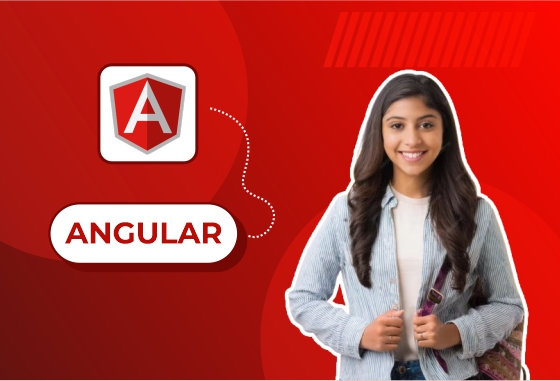
Smart Contract for Decentralized Gaming Platform
Smart Contract for Decentralized Gaming Platform
Objective:
To develop a decentralized gaming platform using smart contracts that ensures fair gameplay, transparent transactions, and player ownership of in-game assets, without relying on centralized authorities or intermediaries. This platform aims to provide a secure and transparent environment for players and game developers.
Key Features:
Decentralized Ownership of In-Game Assets – Players can truly own, buy, sell, and trade in-game assets like skins, weapons, or characters, using non-fungible tokens (NFTs) on the blockchain.
Smart Contracts for Game Mechanics – Game rules, rewards, and transactions are governed by smart contracts, ensuring fairness and automation without human intervention.
Transparent Transaction History – All in-game transactions, such as purchases, trades, or rewards, are stored on the blockchain, providing transparency and an immutable record.
Play-to-Earn Model – Players can earn rewards through their gameplay, and these rewards are recorded on the blockchain and can be exchanged or monetized.
Decentralized Gaming Economy – In-game economies are decentralized, where players can trade, auction, or even stake in-game assets, creating a player-driven economy.
Smart Contract-Driven Tournaments & Bets – Tournaments and betting mechanisms are powered by smart contracts, ensuring automatic payout distribution and transparency.
Secure and Tamper-Proof – Blockchain technology ensures that the game results, transactions, and rewards are immutable and resistant to cheating or manipulation.
Technologies Used:
Blockchain Platform: Ethereum / Binance Smart Chain / Polygon (for NFTs and smart contract execution)
Smart Contracts: Solidity (for Ethereum smart contract development)
NFT Standards: ERC-721 (for unique in-game assets like skins, characters, or items)
Frontend: React.js / Unity (for game interfaces and integration with blockchain)
Backend: Node.js / Express.js (for server-side logic and smart contract interactions)
Storage: IPFS (for decentralized storage of game assets, images, and metadata)
Wallet Integration: MetaMask / WalletConnect (for user authentication and transaction management)
Oracles (Optional): Chainlink (for integrating real-world data, such as random numbers or live event outcomes)
How It Works:
Smart Contract Deployment:
Game developers deploy smart contracts that define the game mechanics, including rules, rewards, and in-game asset ownership, on the blockchain.
In-Game Asset Tokenization:
Players’ in-game assets, such as skins, characters, and weapons, are tokenized as NFTs (Non-Fungible Tokens). This gives players true ownership over their assets, allowing them to trade, sell, or keep them.
Game Mechanics & Rewards:
The smart contract enforces the rules of the game (e.g., reward distribution, scoring, game progress), automatically distributing rewards based on player actions or achievements.
Transaction Transparency:
Every in-game transaction (e.g., item purchase, trade, or auction) is recorded on the blockchain, providing a transparent and immutable history. Players can verify the fairness and legitimacy of transactions.
Play-to-Earn & NFT Marketplace:
Players earn rewards based on their gameplay, such as tokens or rare items, which are stored as NFTs. These rewards can be traded on decentralized marketplaces or used in other games.
Tournaments & Betting:
Tournaments and in-game bets are facilitated through smart contracts, with automatic payouts and no need for a central authority. The contract verifies game results and distributes winnings securely.
Decentralized Governance (Optional):
The platform can implement a decentralized governance system, where the community can vote on game updates, rules, and other platform decisions via blockchain-based voting systems.
Benefits:
Fairness & Transparency:
Smart contracts automate game logic and transactions, ensuring that all players follow the same rules, and providing full transparency for rewards and achievements.
True Ownership of Assets:
Players can truly own their in-game assets (e.g., skins, items) as NFTs, which they can trade, sell, or transfer without the need for a centralized authority.
No Intermediaries:
Eliminates the need for third-party intermediaries, such as centralized servers or game publishers, reducing costs and increasing trust in the system.
Play-to-Earn Economy:
Players can earn rewards through gameplay, incentivizing them to spend more time on the platform while also benefiting financially through asset ownership and trading.
Security & Tamper-Proof:
Blockchain ensures that the game data, transactions, and results are immutable and resistant to hacking or fraud, making the platform more secure for players.
Decentralized Ecosystem:
Players have more control over the game’s economy and their assets. The decentralized nature fosters a player-driven economy, enhancing engagement and long-term sustainability.
Global Accessibility:
Players from around the world can participate in a decentralized, open platform, ensuring that the game is not limited by geographic boundaries or local laws.
Scalability:
The use of blockchain allows for scalability in terms of game expansion, asset tokenization, and integration with other decentralized platforms or ecosystems.





